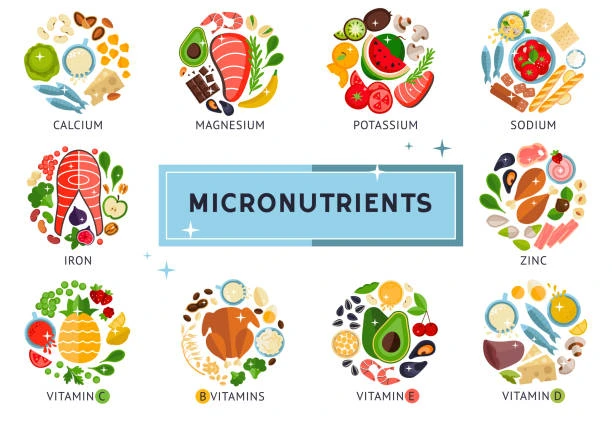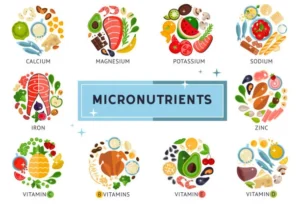what makes up most of your body macronutrient-wise?
what makes up most of your body macronutrient-wise? Our bodies are made up of complex systems consisting of a mix of different parts functioning harmoniously for our lives to be sustained. We refer commonly to the macronutrients our bodies are composed of, fuel, and grow with, with the names of protein, fat, and carbohydrate. The three that make up most of your body macronutrient wise are needed for our overall health, our vitality, and our body’s functioning. But if we take a peek into what our bodies are composed of, we can discover a macronutrient in abundance, forming the major part of our body. So what’s the solution, then? Let’s find out what makes up most of your body macronutrient-wise.
Describe the macronutrients.
The Macron
The main nutrients our body needs in huge quantities for growth, energy, and the normal functioning of the body are called macronutrients. The macronutrients are:
Proteins: composed of amino acids, proteins are involved in growth, tissue repair, and the production of enzymes.
The primary source of human energy, carbohydrates are converted into glucose and consumed by cells for varying purposes.
Fats are vital for cellular structure, for the long-term storage of energy, and for protecting organs.
Protein is also a macronutrient with a primary purpose in the human body, though the other three are needed for survival and overall health.
Proteins: The Body’s Foundation
Protein is also one of the major macronutrients when comparing the human body, primarily when muscle mass, tissue repair, and overall composition are being considered. Protein forms up to sixteen percent of your overall weight. Proteins make up muscles, organs, enzymes, and even hormones.
Protein is necessary for:
Muscle Growth and Repair: Protein, being present in the muscles, must be consumed for their regeneration and restoration because they wear down with usage. The increase of muscle force and volume is the result of this.
Proteins are also accountable for the enzymes’ production, which sustains the human body’s metabolism, digestion, and other key processes.
Immune Function: Antibodies are made up of proteins, and they are very important in resisting disease.
Hormone Regulation: Insulin, growth hormone, and other similar hormones are proteins, and they maintain growth and other processes necessary.
Thus, protein, mostly found in tissues and muscle, becomes a significant composition of the human body. Protein then becomes a major macronutrient of the body.
The body’s primary source of fuel is carbohydrates.
Although protein contributes a major proportion of the human composition, carbohydrates are also a macronutrient for the proper functioning of the body. The carbohydrates provide our body with the needed energy for our normal functioning and for our overall metabolism, even though they don’t construct our bodies like protein.
Cells need glucose, produced when carbohydrates are digested, in order to satisfy their needs. The human body has more carbohydrates in the form of glycogen, located in the liver and muscles. Although they are responsible for maintaining levels of energy, carbohydrates take up a lesser proportion of human body weight when compared with protein.
Fats: The Fuel of the Body
Another essential macromolecule, fat, is necessary for the human body because it supplies our bodies with energy, supports cellular function, and protects and cushions our organs. Twenty and thirty percent of our overall weight is made up of fat.
The main functions of fat are:
Energy Storage: The human body stores fat for use as a source of sustained energy when needed.
Insulation: The human body insulates with fat for warmth.
Organ Protection: Fat acts as a safety cushion for shielding vital organs, including the heart, kidney, and liver.
But even though fat is a necessary constituent of the human physique, it doesn’t influence the composition of our physiques quite as much as protein does.
Water:
The Hero Without a Name Water makes up the greatest proportion of our weight, even though macronutrients including carbohydrates, proteins, and fats also play very significant roles. The weight of a typical grownup consists of 60% water.
Although not a macronutrient, water plays a key role in virtually every human function, including temperature and transporting nutrients.
The composition of macronutrients in the human body To sum up the composition of the body’s macronutrients: Proteins take up approximately 16% of the weight. Fat adds 20–30% of the weight of the body.
Carbohydrates:
Stored mostly in the shape of glycogen and forming a smaller percentage of the total weight of the body, though still necessary for energy. The biggest constituent, water, makes up approximately 60% of the weight.
Dietary factors
The ratio of these macronutrients can also be of importance in your composition. A perfect example of this is when gaining lean muscle mass can be supplemented with a diet with a heavy ratio of protein, but gaining fat and energy reserves can be supplemented with a diet with a heavy ratio of carbohydrates and fat. Maintaining overall fitness, however, requires a balanced diet with a ratio of all of these macronutrients and with enough water.
In conclusion
In short, your body, including your tissues and your muscles, is made up of mostly protein. Protein gives your body its shape and with what’s necessary for its growth and repair, even when carbohydrates and fats are necessary for normal physiological processes and for giving your body its energy. Your body has what it needs for optimal functioning when your diet has water, proteins, carbohydrates, and fats.
FAQs
1. How much protein should I consume for muscle growth?
For those looking to build muscle, it’s generally recommended to consume around 1.6-2.2 grams of protein per kilogram of body weight per day. This can vary based on factors like age, activity level, and goals.
2. Can I lose fat without reducing carbohydrates or fats?
Yes! Fat loss is primarily driven by creating a calorie deficit (burning more calories than you consume). While adjusting macronutrients can support fat loss, it’s the overall caloric intake that matters most.
3. Are fats bad for you?
No, fats are essential for the body, and they support various functions, such as hormone production and protecting organs. It’s important to focus on healthy fats, like those from nuts, seeds, and fish, rather than trans fats or overly processed fats.
4. How does water fit into body composition?
Although water isn’t classified as a macronutrient, it makes up the majority of your body’s composition. Proper hydration is essential for nutrient transport, temperature regulation, and overall body function.
5. Does my body composition change with age?
Yes, as we age, muscle mass tends to decrease while fat mass may increase. This is due to changes in hormone levels and physical activity. Maintaining a balanced diet with adequate protein intake can help slow the loss of muscle mass.



